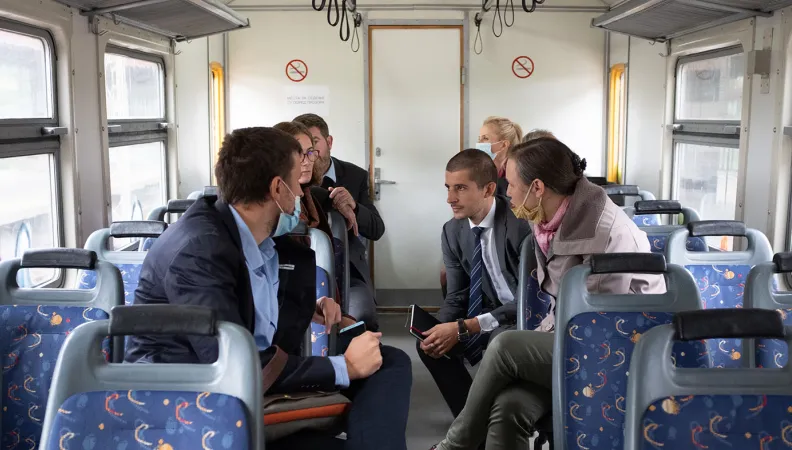Share the page
Mobility in Serbia: Taking Social and Environmental Needs on Board
Published on

Mobility and reliable transportation are essential for people's access to employment and essential services. They're also key ingredients for cities and the wider economy to function. AFD Group has made this issue a major part of its work in the Western Balkans.
Every day, our mobility is the result of individual choices shaped by factors ranging from the existing infrastructure and services to the regulatory framework. Increasingly, a broader spectrum of elements must be taken into account, including environmental sustainability and social inclusion.
To this end, AFD Group is working with local partners in the Western Balkans to encourage and support technological innovation. The Group is supporting the private sector through the sharing of risks, to optimize investments and it’s promoting cooperation between peers to disseminate best practices.
Mitigating environmental and social risks
So far, two projects have been co-financed in Serbia with the World Bank: a railway modernization project in the amount of €102 million (half of which was provided by AFD Group) and a sustainable mobility infrastructure project for Serbian local authorities worth some 265 million (€176.8 million of which came from the Group).
AFD Group also supports the implementation of alternative modes of transportation and the modernization of public transport services. The social (socio-economic and gender) impact of mobility projects also comes into play so that access to transport is equitable and inclusive.
As the transport sector is a significant source of air and noise pollution in Serbian cities, the LIID project (Local Infrastructure and Institutional Development) has as its priority the cleaning up of the transport sector. Launched in March 2022, the project, which consists of a blend of funding and technical assistance, aims to optimize mobility flows by renovating infrastructure and reforming the urban fabric through new sustainable planning.
Towards greater innovation
In Serbia, as part of the City and Climate project, two pilot cities have been selected to develop alternative urban strategies through the analysis of local case studies. One source of funding promotes the smart-city approach to establish new action plans at the scale of the main Balkan cities. The integration of these innovations in the management of cities will serve to optimize urban traffic and improve living conditions in general.
Technological innovations such as hybrid electric-diesel or hybrid-biogas Bus Rapid Transit (BRT) projects are prioritized, as is the use of digital data to map the often diffuse and decentralized transport services. The technical assistance provided by the AFD Group allows for the dissemination of French expertise and innovation.
Innovation is more important than ever to respond intelligently to the challenges of urban congestion and transport affordability. In short, mobility is everyone's business!
